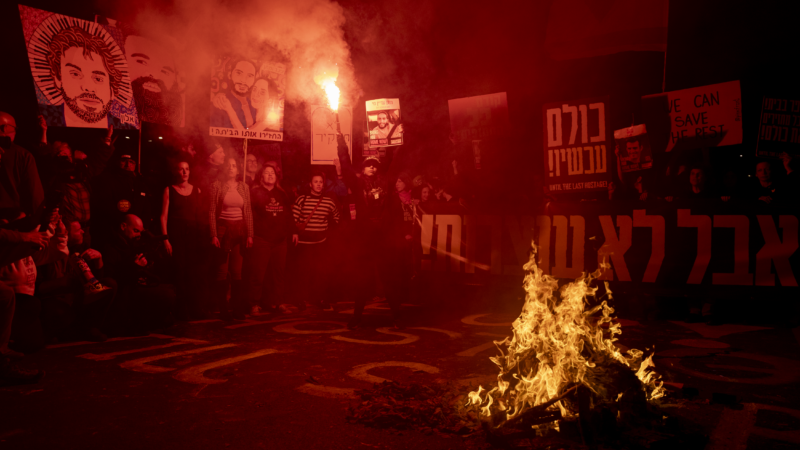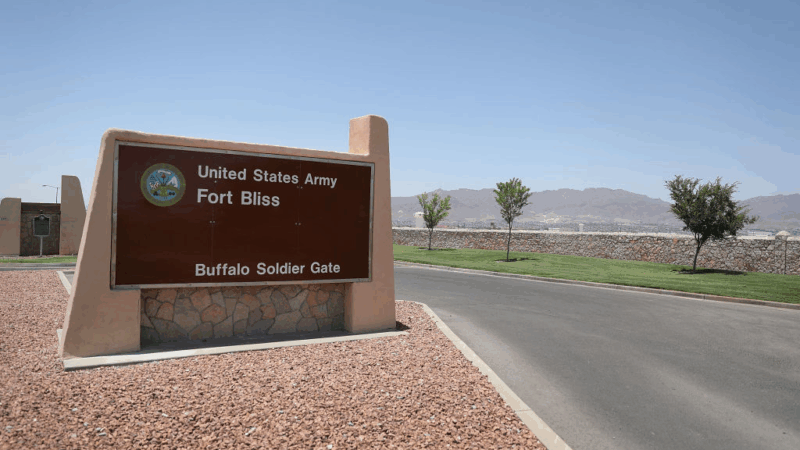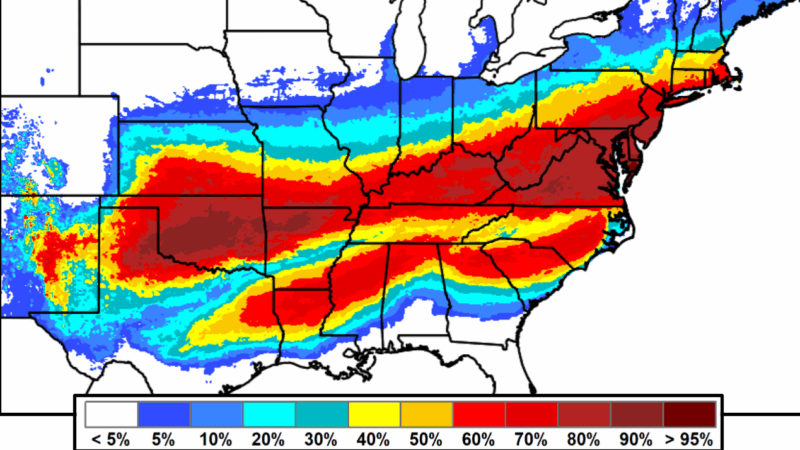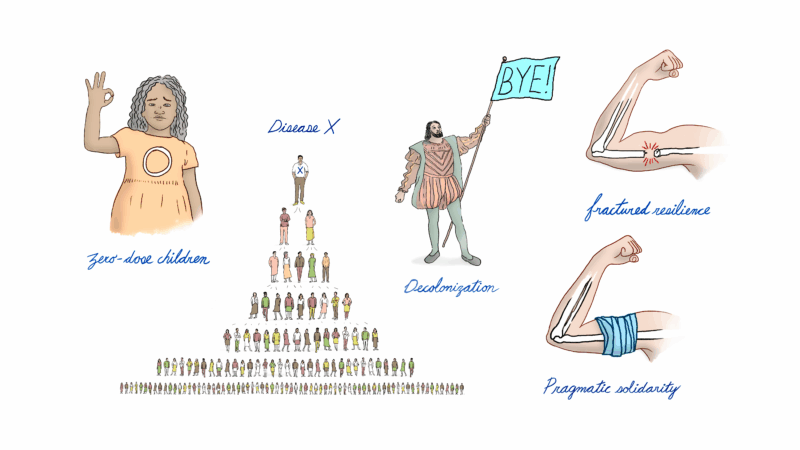What went wrong? Israel’s spy agency lists failures in preventing Oct. 7 attack
TEL AVIV, Israel — Hamas code-named it The Promise of Judgement Day. As early as 2018, Israel caught wind of Hamas’ battle plan to invade Israel from neighboring Gaza. But Israel’s domestic intelligence agency did not consider it a realistic threat.
That is the main conclusion of an investigation by Israel’s Shin Bet agency into the colossal security failure of the Hamas-led attack on Oct. 7, 2023. It was the single deadliest day in Israeli history, when thousands of Palestinian attackers killed nearly 1,200 people and took 251 people hostage.
This is the first inquiry by Israel’s main agency tasked with spying on Hamas into why Israel failed to detect and prevent the attack, following another inquiry by Israel’s military. The Shin Bet hinted at failures by Israel’s political leadership to carry out the agency’s desire to assassinate senior Hamas leaders, and blamed Israeli policies of propping up Hamas rule in Gaza to buy calm on its border.
The report sparked a retort from Prime Minister Benjamin Netanyahu, who has deflected personal responsibility in the security failure.
“On the night of the attack, the Shin Bet chief did not see fit to wake the Prime Minister — a fundamental and obvious decision that should have been made without question,” said a statement from Netanyahu’s office.
What went wrong? A summary of Israel’s findings
In an unusual move for the organization, the Shin Bet spy agency published details of its investigation Tuesday. Here is a list of its main findings:
- Israel maintained a policy of calm with Hamas, which allowed for the group’s “massive buildup.” Israel allowed Qatar to transfer millions of dollars to Hamas to fund its governing bureaucracy in Gaza. The money was diverted to Hamas’ military capabilities.
- Israel falsely thought Hamas was trying to inflame tensions in the Israeli-occupied West Bank, rather than maneuvering to invade Israel from Gaza. Israel had concluded that any major attack would be a multi-front assault from militias throughout the region, not just from Gaza.
- Israel thought its border barrier with Gaza, a system of fences and walls, was more fortified than it actually was.
- Israel had a poor network of spies in Gaza, following a botched intelligence operation in Gaza that Hamas uncovered in 2018. Gaza is a closed-off territory, making it difficult for Israel to recruit sources there.
- Hamas’s decision to attack when it did was due to a confluence of three factors: Israeli practices regarding religious Jewish ultranationalist activities at the Al Aqsa Mosque compound in Jerusalem, which is also revered in Judaism; Israel’s treatment of Palestinian prisoners, which had hardened under Israel’s far-right government; and the perception that Israel’s social cohesion was weakened, which was at a time of domestic Israeli street protests over Netanyahu’s weakening of the country’s judiciary.
A timeline of intelligence failures before the attack
- Israel had obtained intelligence of Hamas’ battle plans in two iterations, once in 2018 and another in 2022, but the agency did not translate it into an actionable threat. A series of signs in the months leading up to the Oct. 7, 2023 attack was dismissed.
- At 1:00 a.m., hours before the attack, the intelligence agency reported Hamas was conducting emergency preparedness — but also saw signs of restraint, and assessed that Hamas was not interested in an escalation at that time.
- At 3:03 a.m., the Shin Bet alerted the country’s security branches, including the Prime Minister’s National Security Council, that several Hamas brigades were activating their networks of cellphones. In a message, the agency said that along with additional signs, “it could point to Hamas offensive activity.” Forty-five SIM cards were gradually activated from the evening of Oct. 5 until two hours before the Oct. 7 attack, but agents dismissed it because a similar number of SIM cards had been activated during the same period one year before.
- At 4:30 a.m., the Shin Bet chief briefed deputies about the worrying signs, and a team of forces was sent to Israel’s south to prepare for a possible infiltration, but it was not sufficient to thwart the large-scale attack.
“The Shin Bet did not prevent the massacre of October 7,” said Ronen Bar, the chief of the intelligence agency, in the published summary of the findings. “As the one who led the organization, I will carry this heavy burden on my shoulders for my entire life.”
Yanal Jabarin contributed to this story from Jerusalem.
Autopsy finds Cuban immigrant in ICE custody died of homicide due to asphyxia
A Cuban migrant held in solitary confinement at an immigration detention facility in Texas died after guards held him down, according to an autopsy report released Wednesday that ruled the death a homicide.
Confused by all the notices issued for intense winter weather? Here’s your guide
The National Weather Service issues a litany of notices before and during inclement weather events. They can be important signals on how to respond.
A massive winter storm will hit large parts of the U.S. through the weekend
A large storm system is expected to hit this weekend, with snow and ice from Texas to the Carolinas and up the Eastern seaboard. The winter system could bring more than a foot of snow.
House Oversight panel votes to hold Bill and Hillary Clinton in contempt of Congress
Republicans on the committee have been seeking to question the Clintons as part of a probe into the government's handling of the Jeffrey Epstein case. The vote sends the matter to the full House.
Lindsey Halligan, Trump’s former personal attorney, exits Virginia prosecutor’s office
The move comes after a federal judge wrote in court document that the "charade of Ms. Halligan masquerading as the United States Attorney … must come to an end."
Global buzzwords that will be buzzing in your ear in 2026
Will it be a year of "fractured resilience"? Or "pragmatic empathy"? Will "MOUs" be the next global health strategy? Are we in a new age of "decolonization" — or of "localization"?








